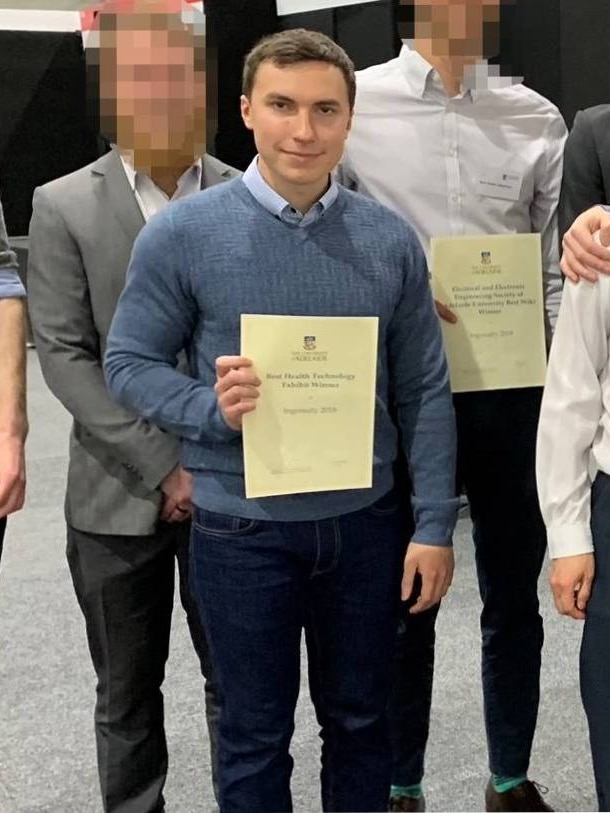An electronics engineer accused of planning a terror attack in South Australia was found with 3D printed firearms and parts, and chemicals used to make explosives, a court has heard.
Former Department of Defence employee Artem Vasilyev, 27, is standing trial in the Supreme Court charged with planning a terror attack on the Cherry Gardens electrical substation.
Prosecutor Justin Hannebery KC told the court Mr Vasilyev intended to advance his ideological cause through conducting a terrorist attack.
“Namely, (his ideological cause being) white nationalism and the promotion of a white ethnic state,” Mr Hannebery said.
The court heard police conducted two searches of Mr Vasilyev’s address in Findon in 2021, and allegedly seized evidence including firearms parts, ammunition, “siege masks” and chemicals including ammonium nitrate, aluminium powder, and red iron oxide powder.
Mr Hannebery said the substances were known to be able to create explosions that could reach “up to 2,000 degrees Celsius – hot enough to melt metal” and with enough force to “kill someone within a metre of the explosion”.
The court heard police also allegedly found PDF files, e-books and internet searches on topics including minimising digital footprints, avoiding police detection, DIY mustard gas, sniper training, DIY graphite bombs, instructions on how to make explosives, DIY gunpowder and “how to disappear and start a new life”.
Defence lawyer Scott Henchcliffe KC told the court Mr Vasilyev maintained his innocence and that all of the prosecution’s evidence was “in dispute”.
He said his client had a firearms licence and an interest in firearms.
“There is no suggestion that he committed a terror attack,” Mr Henchcliffe said.
He described the prosecutor’s argument as an “absurdity”.
“The prosecutor is alleging he was planning an attack on an unmanned substation in the Adelaide Hills.
“How could anyone think such an attack would advance such a cause?” Mr Henchcliffe said.
Jury warned about confronting evidence
During Wednesday’s jury empanelling, members of the public called upon for jury duty were warned they may be required to see and hear confronting evidence during the estimated four-week long trial.
“These include (political, religious and ideological causes such as) fascism, Nazism, anti-Semitism, socialism, communism, anti-Islam, white supremacism, and white nationalism,” Justice Sandi McDonald said.
She told the jury it would also be exposed to evidence about firearms, terrorist attacks including the Christchurch 2019 attack, racist language, and derogatory comments about minority groups.
“If you think it would cause you undue hardship or distress such that you could not remain completely impartial it is important that you raise that with me and ask to be excused from the jury panel.”
The trial continues.




